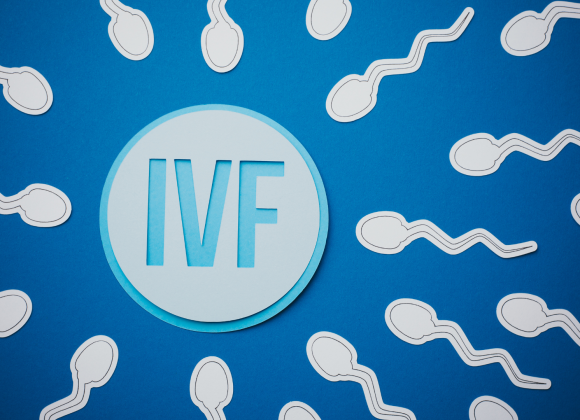What is male infertility? An overview
For many men, the dream of fatherhood is deeply cherished. However, fertility issues can bring emotional anguish and strain relationships. Male infertility accounts for 40-50% of all cases, yet it receives less attention than female fertility. This disparity often leaves men feeling inadequate, ashamed, or isolated. Factors like low sperm production, genetic abnormalities, hormonal imbalances, and lifestyle choices contribute to male infertility. Blocked reproductive tracts, chronic illnesses, or environmental toxins also play a role. Infertility means being unable to conceive after 12 months of unprotected intercourse. According to the WHO, male infertility occurs when a man cannot impregnate a fertile female within this timeframe.
A semen analysis is crucial for diagnosis, as it evaluates sperm count, motility, and morphology. Some causes can be reversed through lifestyle changes, hormone therapy, or surgery. Others may require assisted reproductive techniques (ART) like IVF. Advances in reproductive medicine provide new hope, but male infertility remains under-recognized.
Symptoms
Male infertility may not always have obvious symptoms, but some common signs include:
- Runny or watery sperm: Indicates possible issues with sperm quality.
- Low testosterone production: Can lead to reduced fertility and other hormonal imbalances.
- Difficulties with ejaculation: Includes delayed ejaculation, retrograde ejaculation, or complete inability to ejaculate.
- Reduced sexual desire: May be linked to hormonal deficiencies or other underlying conditions.
- Erectile dysfunction: Difficulty in achieving or maintaining an erection, affecting fertility.
- Pain or swelling in the testicles: Could be a sign of infections, varicocele, or other reproductive issues.
- Abnormal sperm count or motility: Poor sperm production, movement, or shape can reduce the chances of conception.

Causes and Treatments of Male Infertility
Causes
There are many causes of male infertility, which can be medical or lifestyle related. Diagnosing the root of infertility is crucial in guiding the appropriate intervention and enhancing reproductive wellness. Some of the possible causes of male infertility include those that affect sperm production, quality, motility, and overall reproductive function.
1) Medical Causes:
- Varicocele: enlargement of testicles veins influencing sperm creation
- Hormonal Imbalances: Abnormally low testosterone levels or other hormonal disorders affecting fertility.
- Infections: STIs, prostatitis or testicular infections that can harm sperm ejaculation.
- Ejaculation Disorders: Retrograde ejaculation or blockages that prevent sperm release.
- Genetic Conditions: Disorders such as Klinefelter syndrome that impact sperm production.
- Cryptorchidism: Testicles fail to drop properly when the individual is young, which can lead to ineffective sperm production.
- Tumors or persistent sicknesses: Cancer or long-term ailments like diabetes affecting reproduction.
- Medication Side Effects: Some medications for depression, hypertension, or chemotherapy may lower fertility.
2) Unhealthy lifestyle factors :
- Smoking: Lowers sperm count and motility while increasing DNA damage significantly.
- Alcohol: Reduces testosterone levels and disrupts testosterone production, impacting fertility.
- Drug Use : Anabolic steroids, marijuana, and cocaine cause hormonal imbalances and lead to testicular shrinkage.
- Obesity: Raises estrogen levels and reduces sperm quality, creating additional reproductive challenges.
- Stress & Lack of Sleep: Directly harm hormonal balance and weaken sperm health, making conception harder.
- Exposure to Toxins: Pesticides, heavy metals, and radiation negatively affect sperm production and quality.
- Sedentary Lifestyle: Leads to poor circulation and unbalanced hormones, further harming reproductive health.
Treatments
Treatment for male infertility depends on the underlying cause, and the approach may involve medical interventions, lifestyle changes, or assisted reproductive technologies. Here are some common treatment options:
1) Medical Treatments:

- Hormonal Therapy : If hormonal imbalances are the cause of infertility, medications can restore balance to testosterone or other hormones, thereby improving sperm production.
- Antibiotics : To address infections like prostatitis or sexually transmitted diseases, doctors may prescribe antibiotics, which can effectively clear up these issues and support fertility.
- Surgery : By correcting varicocele or blockages in the reproductive tract, surgery can significantly enhance sperm quality and motility, leading to better outcomes.
- Medications for Ejaculation Problems : Medications can resolve conditions like retrograde ejaculation, thus ensuring proper sperm delivery during conception attempts.
- Assisted Reproductive Technologies (ART) : For couples facing severe male infertility, ART options such as IUI or IVF provide a pathway to achieve pregnancy successfully.
- Testicular Sperm Extraction : When sperm production is low or absent, sperm can be retrieved directly from the testicles, allowing it to be used in ART procedures effectively.
2) Counseling and Psychosocial Support:
Whether single, partnered, undergoing IVF or IUI, in treatment/fertility process or not, those with infertility face emotional challenges and counseling or therapy may assist with coping and processing the stress and emotional repercussions. A fertility expert may suggest that both partners undergo counseling to deal with any emotional challenges posed by infertility.
3) ART (Assisted Reproductive Technologies):
1. In Vitro Fertilization (IVF): In Vitro Fertilization (IVF) is the next most common form of ART, in which eggs are generated in the body and fertilized in a lab. IVF is often advised for couples struggling with infertility, regardless of whether it is related to a male or female factor. With IVF, eggs and sperm are manipulated directly to achieve fertilization and pregnancy.
2. Intracytoplasmic Sperm Injection (ICSI): A highly sophisticated form of Assisted Reproductive Technology (ART) used for male infertility. This is usually used in conjunction with in vitro fertilization (IVF) to help couples where male infertility plays a major role. ICSI is specifically useful in situations of poor sperm quality, like a low sperm count, irregular sperm, or inadequate mobility, as natural fertilization can be difficult in such scenarios.
Prevention
- Quit Smoking : Smoking lowers sperm count and motility, so quitting can significantly improve fertility. Additionally, it benefits overall health.
- Practice Moderation with Alcohol : Reducing alcohol intake improves sperm quality and balances hormone levels, leading to better reproductive health.
- Maintain a Healthy Weight : Achieving and maintaining a healthy weight helps regulate hormones and boosts sperm quality effectively.
- Get Physically Active : Regular exercise enhances circulation and balances hormones, which directly supports fertility. Moreover, it promotes overall well-being.
- Manage Stress : Incorporating stress-reducing techniques like yoga, meditation, or counseling can lower stress levels and boost fertility.
- Avoid Toxins : By reducing exposure to harmful chemicals and radiation, you can protect sperm quality and improve reproductive outcomes.
- Follow a Balanced Diet : Eating nutrient-rich foods, including zinc, vitamin C, and folic acid, supports sperm health and strengthens fertility naturally.
The Rise of Male Infertility in India
Infertility impacts around 15-20% of Indian couples, with male infertility accounting for 40-50% of cases. According to the WHO, India’s infertility rate ranges between 3.9% and 16.8%, and notably, 40% of these cases involve male infertility. This significant statistic highlights a growing concern. However, several factors contribute to this issue. For instance, India’s vast population often faces limited awareness about reproductive health. Additionally, restricted access to quality healthcare exacerbates the problem. Despite this, male infertility remains shrouded in stigma and shame. Many families associate it with secrecy, avoiding open discussions. Consequently, the emotional burden on affected men increases. Yet, addressing this taboo is crucial. Raising awareness and improving healthcare access can make a difference.




